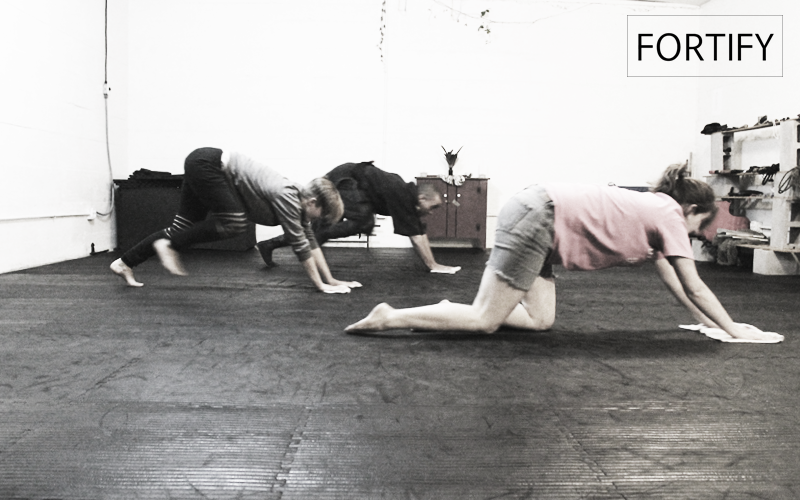
Reishiki – Etiquette
There are three things that should be understood about etiquette as a new student:
Attendance
Show up with a frequency that is consistent with your goals, not your finances. Otherwise put, never fail to show up to class because of money. If your goal is to be an instructor one day, or just an instrument of doom with a sword than we should be seeing a lot of you, and that’s all there is to it. If what you get out of training is a periodic break from the sterile spectatorship of everyday life, a little primal challenge, but not a driving quest, than we are happy to see you a couple times a month, or whenever works with your schedule. Fortify is run on donation, and we can always find a way for you to make up the difference. Just show up as consistently as your goals require.
The Three Words for Stop
We have three words for ‘stop’, and yes we need that many.
- Yame – Full Stop, the equivalent of a “Cease Fire!” on a shooting range. This is the big important, “STOP!” It means everyone in the room stop what you’re doing and pay attention to the instructor.
- Itai – It hurts! This also means stop, but it’s more the verbal equivalent of tapping out. It’s our universal safe word.
- Mat’te – Pause/Freeze. This is the command to do your best to hold perfectly still, and is usually followed by a commentary on form.
Reishiki is an Art
Newcomers often feel awkward about not knowing all of the “rules”. Don’t. In a setting such as this etiquette is just another art being studied, and you’ll never be finished learning it, nor will you be expected to ever be perfect at it.
An interesting thing about the etiquette of martial arts is that it is all intricately tied to the martial study, and even to physics itself. The more one improves in matters of etiquette the better one gets at living in general. In example, we don’t put one hand behind our back and the other across the stomach – as is common in some traditions – because this implies the drawing of one (or even two) weapons. Our hands are held lightly at our sides, a polite show of respect. All of this attention to detail brings the practitioner into the present, and causes us to really live in the moment, taking in all of the variables around us, and embracing responsibility for that which we influence. It sounds really heavy, but that’s also why we don’t immediately place high standards on newcomers. Just come in and learn at your own pace.
